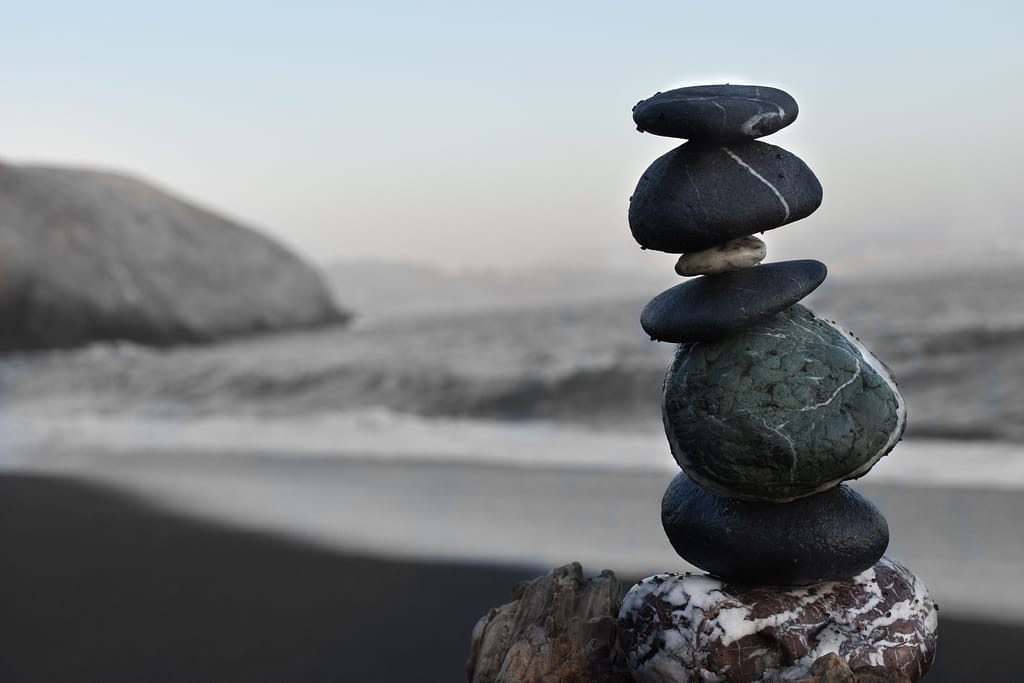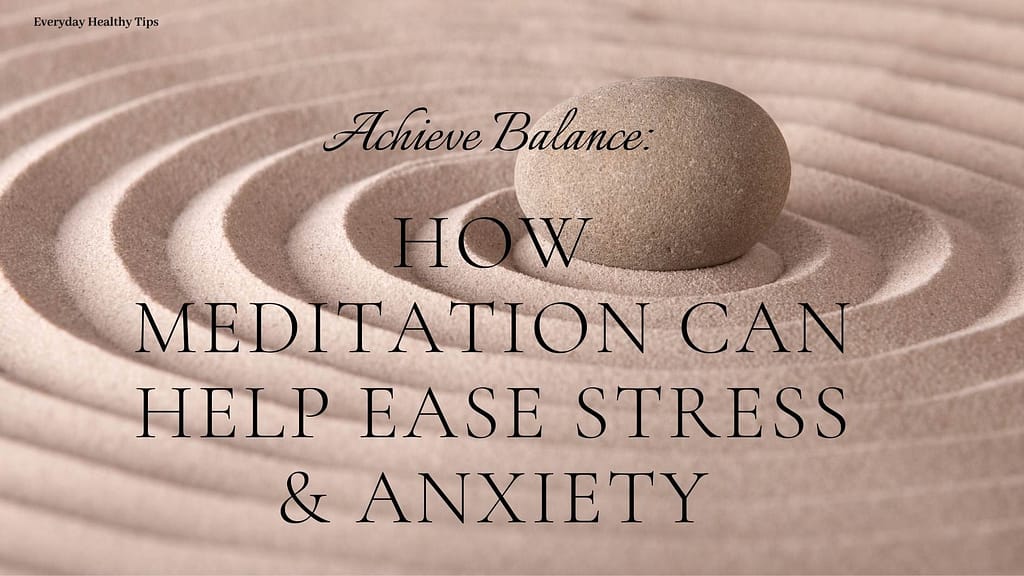Many different cultures have used meditation for hundreds of years. It’s often regarded as a way to improve health and well-being by lowering stress and sharpening the mind. But can it effectively help people feel less anxious? Examining the previous studies ought to yield the necessary information.
The first crucial realisation is that anxiety is a typical and common reaction to pressure. Anxiety is a normal feeling that can be helpful when the stakes are high, like when we have a big test or decision to make. However, when anxiety lasts for extended periods of time and gets in the way of daily life, we have a problem.
Anxiety can be treated with a variety of methods, including talk therapy, medication, and behavioral changes. Anxiety management through meditation has gained popularity, and for good reason.
Johns Hopkins researchers discovered 47 well-designed trials on these concerns. Their JAMA Internal Medicine research reveals that mindfulness meditation eases physical and emotional discomfort.

Mindfulness Meditation
The mindfulness meditation involves concentrating on the here and now without passing judgement on it and becoming aware of the cyclical nature of one’s thoughts and feelings.
Let the stillness of the present envelop you and let the peace of meditation wash over you.
Find a spot that is calm and comfortable, where you can either sit or lie down, so that you can practise mindfulness meditation. Begin to concentrate on your breathing by taking a few slow, deep breaths. It’s totally fine if your thoughts stray elsewhere!
Bring your attention back slowly to the breath you’re taking. You can also direct your attention to bodily sensations, such as the pressure of the ground or chair against your frame, or the sensation of air flowing in and out of your body.
Mindfulness meditation is most helpful when done with an open, curious mind and patience with one’s own learning and growth. Recognize how your emotions and thoughts come and go without trying to change them.
If you find yourself getting lost in a troubling thought or feeling, focus on your breathing to bring yourself back to the here and now.
Mindfulness meditation can be done for as little as a few minutes or as long as a few hours.
Many people find it helpful to do mindfulness meditation for a set amount of time every day, whether it’s right when they wake up or right before they go to sleep.
Mindfulness meditation, when done every day, has been linked to a number of health benefits, such as reducing stress and making people feel more calm and happy.
Learning to Let Go of Stressful Thoughts
It’s likely that the world that we live in is stressful and worrying, and that it’s difficult to dissociate oneself from the negative emotions caused by thinking about such things.
One of the most important skills to develop during a lifetime is the ability to let go of undesired and confining beliefs. One of the best ways to achieve this is by mindfulness meditation and careful thought.
Taking a moment to reflect on how you are feeling can help you identify the elements that are causing your stress and zero in on the coping techniques that are most helpful for you. You can increase your chances of reaching the inner calm and clarity you seek by meditating on a daily basis and focusing on your breathing.
If you take these steps, you will be able to put your stress in the past and focus on what is actually important to you. Engaging with nature, taking a stroll, or even lying down in the sun for a time can all be beneficial strategies to relieve stress and attain a sense of calm.

Meditation Routine
Making a meditation program could be very helpful for anyone who wants to live a more mindful and peaceful life. By making time for regular meditation, we can start to feel more connected to the world around us and even reach a certain level of inner enlightenment. Creating a meditation program is a journey of self-discovery and personal growth that takes time and effort.
Here are some tips for getting started with a good meditation practice:
Choose a time that works for you. Some people like to meditate right when they wake up, while others like to meditate later in the day or right before bed. Choose a time that works well for you and your plans.
Find a quiet, comfortable place: It is important to find a place where you can sit or lie down without being disturbed. This could be a special place in your home where you go to meditate, or it could be a quiet spot in your bedroom or living room.
Start slowly. It’s okay to start with just a few minutes of meditation and slowly add more time as you feel more comfortable. Even a short amount of time spent meditating can help.
Try to meditate at the same time every day so that it becomes a habit.
Choose a way to meditate that works for you: There are many different ways to meditate, and the best one for you might depend on who you are and what you want to get out of it. You might want to try out a few different approaches to find the one that works best for you.
Be patient. It takes time and patience to learn how to meditate well. Don’t give up if it’s hard at first or you have trouble staying focused. Just going back to the practise will make it easier in the long run.
Meditation can become an important part of your daily life if you do it regularly. It can help you reduce stress, focus better, and feel better about yourself.
Conclusion
To sum up, meditation is a powerful tool for managing stress and anxiety. It helps to foster a healthier outlook on life and encourages a positive mindset. It also helps to soothe the body and mind, allowing for greater clarity and focus. Finally, it can provide an opportunity to explore the inner self, discovering new perspectives and insights. With practice, meditation can lead to a more balanced, relaxed, and mindful life.


